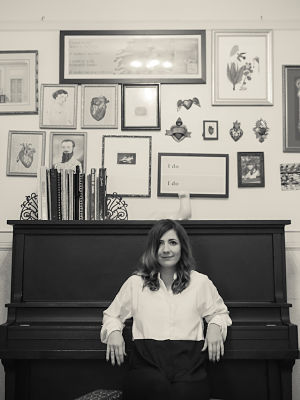Orchard Burning
This is the tree I had my first kiss—it was like a viewing,
gory and wet. Classmates in almond branches, watching
the wreck. Doing nothing to feign casualty. This is
the water tower I’ve told you of many times. Yes,
it was the drinking supply I swam in, naked. Yes.
I got a thrill, at seventeen, thinking of being
in someone’s coffee. I still do. My town is named
after a season, plural of the same, that I don’t favor,
but I love you all, driving us up the neck-y wind
of 93A, the old Ruggles’ orchard where the bark
is painted white to the waist—I’ve buried a fair number
of mean boy cats here, who’d gotten too mouthy
with the interstate, too big in the britches.
One summer, as a teen, at an orchard burning,
a half acre of dead peach in the field, barely panting
glows, I stood too close to the slow, sleeping beast.
My shoes burned quietly, I thought I might be stuck
to the earth, and was grateful for it. The wood,
neither useful nor accommodating anymore, festered
as wounding as making a decision. In the country, we know
how to call a dying thing. We shoot the moon over
when to plant and when to weed. We do the merciful thing.
I’d not been old enough to see how cities turn their backs
from this. City sky can’t do what burning an orchard can—
make a horizon go out of its mind, turn into a space
that used to be filled with the contents of the day, and now
sits empty. I am more country than most I know.
My town is the smallest. Perhaps this is why I boom
when I laugh, always pausing for the echo.

 July Westhale is the author of Trailer Trash (2016 Kore Press Book Award), The Cavalcade (Finishing Line Press), and Occasionally Accurate Science (Nomadic Press). Her most recent poetry can be found in The National Poetry Review, Tupelo Quarterly, RHINO, burntdistrict, Eleven Eleven, 580 Split, and Quarterly West. Her essays have been nominated for Best American Essays and the Pushcart Prize. She moonlights as a journalist at The Establishment, and her pieces have appeared in HuffPost. Learn more at
July Westhale is the author of Trailer Trash (2016 Kore Press Book Award), The Cavalcade (Finishing Line Press), and Occasionally Accurate Science (Nomadic Press). Her most recent poetry can be found in The National Poetry Review, Tupelo Quarterly, RHINO, burntdistrict, Eleven Eleven, 580 Split, and Quarterly West. Her essays have been nominated for Best American Essays and the Pushcart Prize. She moonlights as a journalist at The Establishment, and her pieces have appeared in HuffPost. Learn more at 


